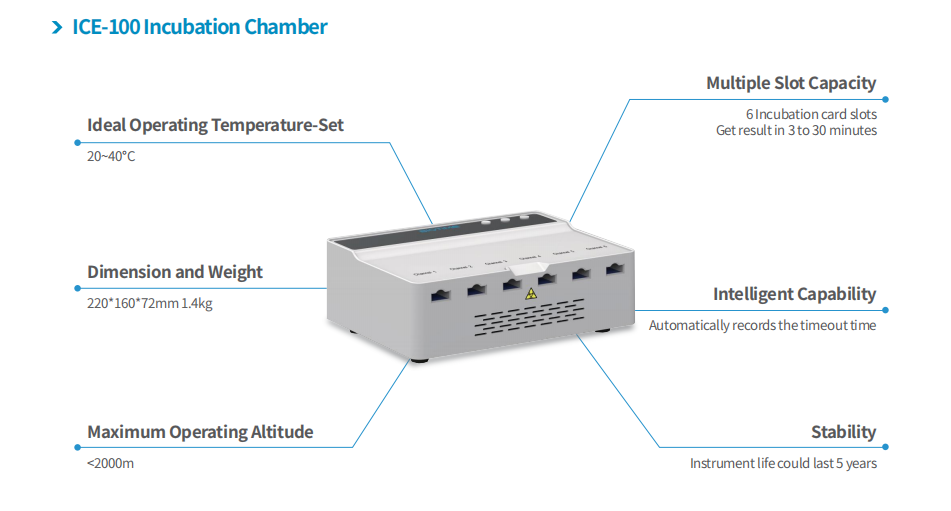
Advantages
Technical Data
| Parameters | |
|
Dimensions |
L220mm*W160mm*H72mm |
|
Weight |
1.4kg |
|
Power Conditions |
DC12V, 5A |
|
Temperature Setting |
20~40°C |
|
Time Setting |
3~30mins |
|
Operating Environment
|
|
|
Temperature |
10-30°C |
|
Humidity |
<95% |
|
Atmospheric pressure |
86.0KPa~106.0KPa |
|
Operating altitude |
<2000m |
|
Storage Conditions
|
|
|
Temperature |
0-50°C |
|
Humidity |
<80% |
Intended Use
For reagent cards incubation
Next :
FLI-600 FIA AnalyzerPlease provide us with the information below, and we'll contact you as soon as possible.